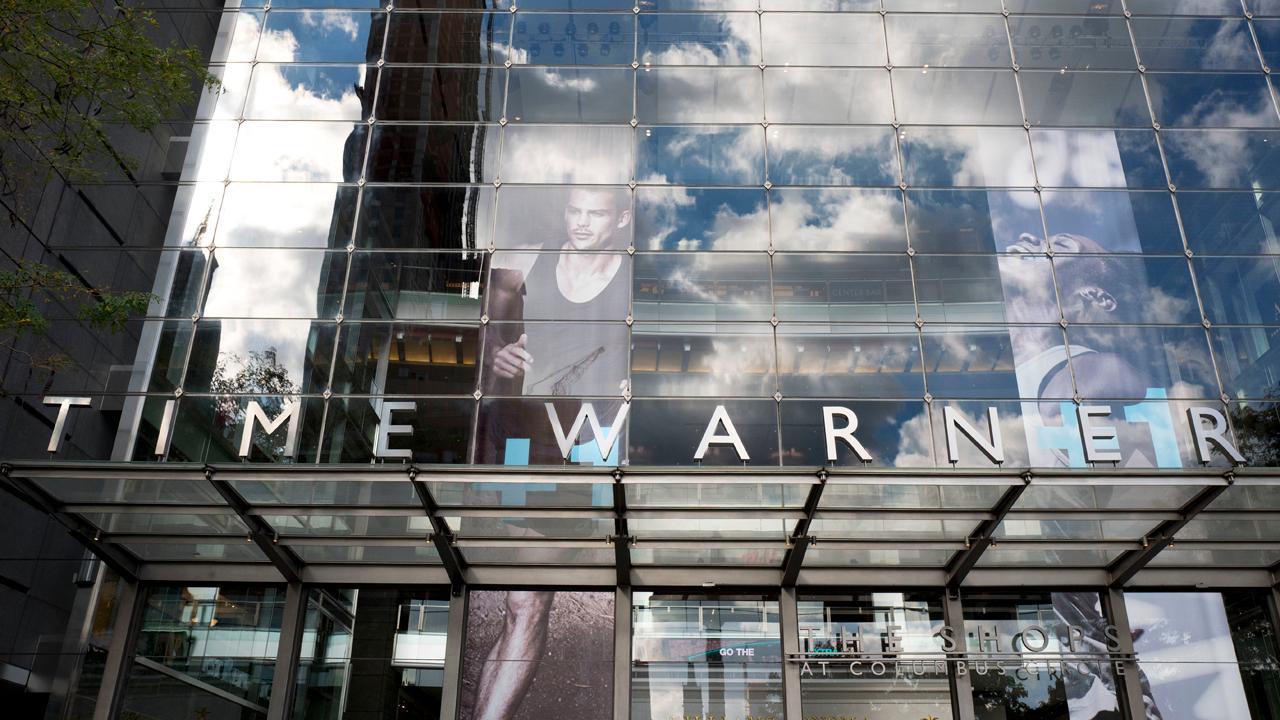AT&T's CEO Stephenson and DOJ get ready for a potential battle royal in court
AT&T (NYSE:T) and Time Warner (NYSE:TWX) executives have been preparing to close their $85 billion mega-merger but Justice Department officials have other ideas including a possible lawsuit to block the deal if the telecommunications company doesn’t concede to their demands, FOX Business has learned.
After a tense meeting on Monday between antitrust lawyers and company officials, sources within the DOJ are telling FOX Business that they’re reviewing all legal options if AT&T doesn’t spin off large swaths of Time Warner.
Those same sources also say that DOJ officials have signaled in recent days that they prefer Timer Warner’s Turner Broadcasting, the parent company of CNN, to be what’s sold, but they’re also open to seeing HBO and DirecTV be part of the solution. Turner also owns entertainment networks such as TNT, TBS, and TruTV.
The DOJ is concerned the combined entity in its current form could lead to a monopoly and may give the companies the ability to charge more than their competitors, according to those familiar with the matter.
The "DOJ’s main concern regarding this transaction is that the merged firm will raise the costs of Time Warner content to rival distributors, and inhibit the ability of innovative new technologies to deliver content to consumers,” said one source close to the negotiations.
AT&T CEO Randall Stephenson is not backing down from the threat of a possible lawsuit as he confirmed at The New York Times DealBook Conference on Thursday. “We are prepared to litigate now,” and later noting that he believed any lawsuit would be completed by the mergers deadline of April 22, 2018.
A DOJ spokesman did not return FOX Business calls for comment at the time of publication. A spokesman for AT&T declined to comment.
BTIG analyst Walt Piecyk is among those who see less competitive issues with the tie-up and potentially more personal ones by the Trump administration, particularly after then-candidate Trump said on the campaign trail last October that his administration would not approve the proposed merger “because it’s too much concentration of power in the hands of too few.” In a phone interview, Piecyk also questions the thinking of Makan Delrahim who heads the antitrust division.
“Things seemed to change dramatically when Delrahim was put into the DOJ. So some of the things we see today are comments such as ‘well we’re just following recommendations of the staff.’ Well why wasn’t that evident during the past administration? Things seemed to change dramatically with the new DOJ head appointed by the Trump administration,” Piecyk said.
Delrahim pushed back on the notion that the Trump administration was having any influence on reviewing the deal after news broke that officials were pushing for a spinoff of CNN late Wednesday.
“I have never been instructed by the White House on this or any other transaction under review by the antitrust division,” Delrahim said. His press secretary, Raj Shah, also added “No White House official was authorized to speak with the Department of Justice on this matter.”
Stephenson also came out with a statement on Wednesday, denying that he’s ever offered to sell CNN and has no plans to do so in the future.
Regardless of whether Stephenson stands up against the DOJ, Piecyk says the government's counterpunch will likely be some sort of lawsuit.
“We don’t believe AT&T is going to be willing to sell Turner, or DirecTV or HBO. We don’t believe AT&T is going to be willing to sell these assets and as a result the DOJ is going to sue” Piecyk says.
A threat to sue a company to stop a merger isn’t unprecedented for the DOJ. In May 2016, President Obama’s DOJ announced that Haliburton (NYSE:HAL) and Baker Hughes were abandoning their merger after his administration threatened to block the deal. General Electric (NYSE:GE) then purchased Baker Hughes.
“The department filed suit on April 6, 2016, to block the merger, alleging that the transaction would unlawfully eliminate significant head-to-head competition between the companies in at least 23 markets crucial to the exploration and production of oil and natural gas in the United States,” the DOJ said then.
Fox News and FOX Business Senior Judicial Analyst Judge Andrew Napolitano explained the way the DOJ could go after AT&T in a phone interview with FOX Business.
“The DOJ would say this violates the Sherman Act because it’s a monopolistic behavior. It basically means if you have a huge acquisition, AT&T, gobbling up Time Warner, they dominate more than 40% of the market. The question is what’s the market? How is there a marker for the market? Is it ad revenue? Is it demographic ratings? Is it for the U.S. or the U.K. or the E.U.?” Napolitano said.
“All of this would be subject to litigation. The killer for the government’s case is politics. If there’s whiff of politics, the government loses. The DOJ would have to put forward a lawsuit with enough economic allegations for a judge to say hold off on this merger until we litigate,” he added.




















